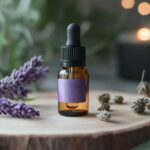Guide to the Synergistic Effects of CBD and Chemotherapy Drugs in Cancer Treatment
Introduction
In the relentless battle against cancer, traditional therapies like chemotherapy have long been the cornerstone of treatment. However, with the rise of alternative therapies, Cannabidiol (CBD) emerges as a potential ally in this fight. CBD, a non-psychoactive compound derived from hemp, has sparked interest for its therapeutic properties, particularly when used alongside conventional chemotherapy drugs. This guide explores the nuanced relationship between CBD and chemotherapy, detailing their combined effects, the science behind their synergy, and the implications for cancer patients seeking relief.
Understanding CBD and Its Role in Cancer Treatment
Mechanisms of Action
To appreciate how CBD complements chemotherapy, it’s vital to understand how it operates within the body. CBD interacts with the endocannabinoid system—an intricate network of receptors, neurotransmitters, and enzymes vital to regulating physiological homeostasis. Key mechanisms include:
- Apoptosis Induction: CBD can trigger programmed cell death in abnormal cells, a process essential for eliminating cancer cells.
- Autophagy: By promoting autophagy, CBD supports the clearing of damaged cells, potentially preventing cancer cell proliferation.
- Cytokine Modulation: CBD influences inflammatory pathways that are often dysregulated in cancer, aiding in immune response.
The appeal of CBD lies in its ability to target various biological pathways, offering a multi-faceted approach to cancer treatment.
Anti-Tumor Effects
Numerous preclinical studies highlight CBD’s anti-cancer properties. Research shows CBD inhibits growth in several cancer types, including:
- Breast Cancer: By modulating intercellular adhesion molecules, CBD reduces the invasiveness of breast cancer cells.
- Lung Cancer: Studies indicate that CBD can induce apoptosis in lung cancer cells, regardless of their receptor status.
- Colon Cancer: Evidence suggests that CBD can slow down the progression of colon cancer by interfering with specific cancer pathways.
These findings underline CBD’s promise as a complementary treatment in conjunction with chemotherapy.
Synergistic Effects with Chemotherapy Drugs
Enhanced Efficacy and Reduced Side Effects
When CBD is administered alongside chemotherapy drugs, remarkable outcomes have emerged. The synergy observed can both heighten the anticancer effects and mitigate the side effects associated with traditional therapies. For example, CBD appears to enhance the effectiveness of gemcitabine, a chemotherapeutic agent for pancreatic cancer, by inhibiting growth through specific receptor interaction.
Specific Chemotherapy Combinations
Various studies have demonstrated successful CBD and chemotherapy pairings across several cancer types:
- Breast Cancer: Combinations of CBD with drugs like vinblastine and doxorubicin exhibit enhanced cancer cell lethality.
- Non-Hodgkin Lymphoma: Research involving CBD with ibrutinib shows significant reductions in cell viability, contributing to better treatment outcomes.
These combinations leverage the unique properties of each compound, creating a powerful coalition against cancer cells.
Mechanisms of Synergy
The synergy between CBD and chemotherapy is attributed to their ability to work together on multiple biochemical fronts:
- Targeting Different Pathways: While chemotherapy disrupts DNA replication and cellular division, CBD can arrest the cell cycle and promote apoptosis simultaneously—making it harder for cancer cells to survive.
- Reducing Drug Resistance: As resistant cancer cell lines emerge, the multi-target approach provided by combining therapies can be critical in overcoming these challenges.
Overall, this teamwork enhances therapeutic efficacy while decreasing the potential for adverse effects.
Clinical Implications and Future Directions
Current Research and Clinical Trials
Although preclinical evidence is promising, translating these findings into clinical practice requires robust research. Ongoing trials aim to determine optimal dosing, efficacy, and safety profiles of CBD when used with standard chemotherapy. Preliminary results indicate that CBD is generally well tolerated, even at higher doses, with minor side effects.
Safety and Efficacy
The safety of any treatment is paramount, especially in vulnerable populations like cancer patients. Studies suggest that CBD can have a favorable safety profile, often helping alleviate symptoms without significant adverse events. Regardless, patients must consult healthcare professionals to tailor the appropriate use of CBD within their treatment plans.
Practical Applications and Patient Benefits
Symptom Management
Beyond its potential in fighting cancer cells, CBD plays a pivotal role in alleviating chemotherapy side effects. This includes:
- Pain Relief: CBD has analgesic properties that can help manage chronic pain.
- Nausea and Vomiting Reduction: It can reduce chemotherapy-induced nausea, improving patients’ ability to tolerate treatment.
- Sleep Improvement: Many cancer patients struggle with insomnia; CBD can aid in enhancing sleep quality.
- Mood Enhancement: By alleviating anxiety and depression linked to cancer treatments, CBD can positively affect mental well-being.
Combining CBD with THC, another cannabinoid, can further amplify these benefits, offering comprehensive symptom management.
Quality of Life
One of the most significant outcomes of incorporating CBD into cancer care is the enhancement of patients’ quality of life. Reducing the severity of chemotherapy side effects allows patients to adhere to their treatment regimens more effectively, fostering not just survival but a more dignified and hopeful experience.
Conclusion
The exploration of CBD as a synergistic agent in conjunction with chemotherapy marks a progressive shift in cancer treatment paradigms. As evidence continues to mount regarding its capacity to improve treatment efficacy and alleviate side effects, CBD is increasingly seen as a valuable ally in this journey. Ultimately, patients and healthcare providers should remain informed about emerging research, understand potential benefits, and develop customized treatment plans that incorporate this promising compound.
Actionable Takeaways
- Consult Healthcare Professionals: Prior to incorporating CBD into any cancer treatment protocol, consult with a medical professional specializing in integrative oncology.
- Stay Informed: Follow ongoing research and clinical trials to stay ahead of developments in the CBD and chemotherapy landscape.
- Consider Symptom Management Strategies: Evaluate the potential role of CBD in addressing cancer-related symptoms to enhance overall quality of life.
By embracing the synergistic effects of CBD and chemotherapy, we inch closer to compassionate and effective cancer care that emphasizes both survival and quality of life.





















